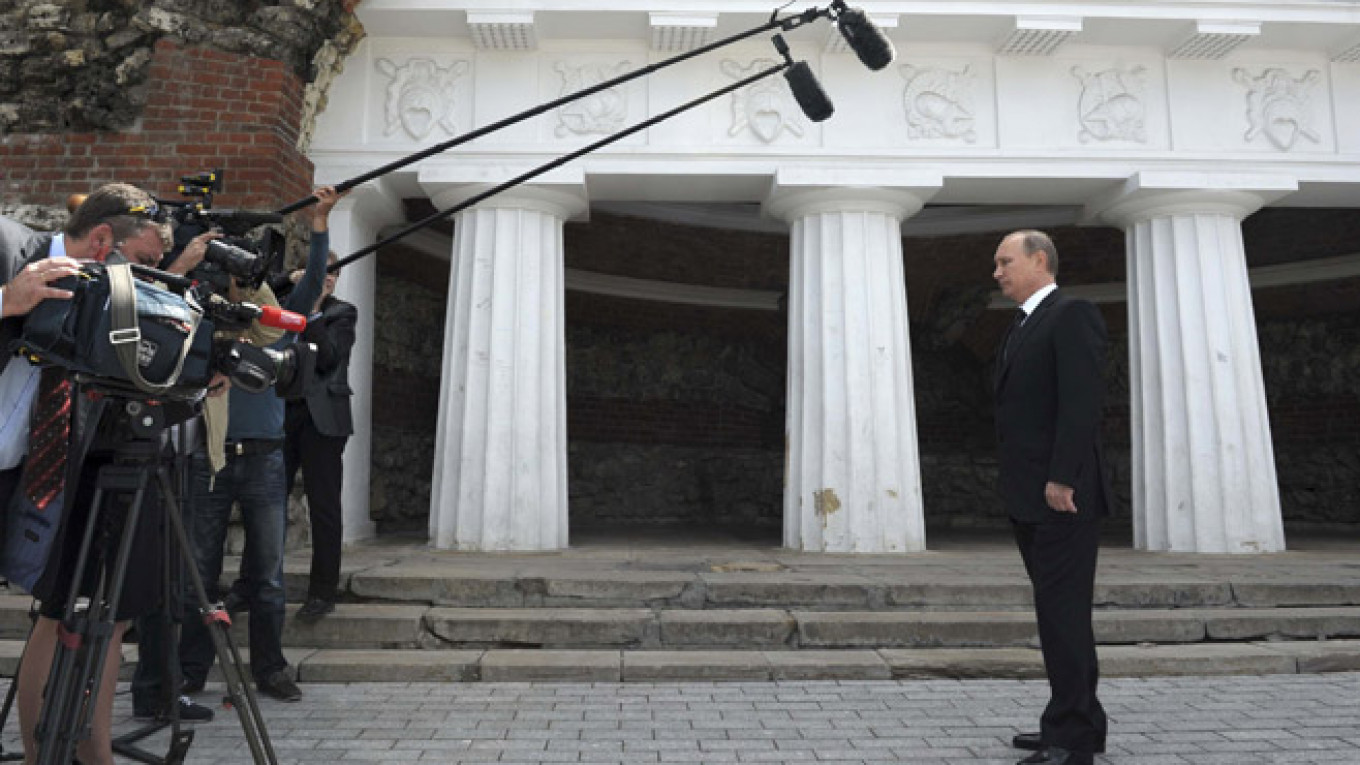В кавычках: in quotes, so-called
I have never made peace with Russian знаки препинания (punctuation marks). I persist in putting in запятые (commas) where they don't belong, dither over where the period goes with кавычки (quotes) and have resorted to the childish principle: When in doubt, use тире (dash).
But when I started learning what these symbols are called in Russian and how they are discussed, punctuation got, well, interesting. Кто бы мог подумать? (Who'd a thunk it?)
Take, for example, кавычки (quotation marks). First fun fact: There is no singular form of the word. This is good news for us foreigners: You don't have wonder if it's один кавычек or одна кавычка (one quotation mark) like you do about other words used mostly in the plural, like носки (socks) — носок or носка?
Second fun fact: The «» style of Russian quotation marks is called ёлочки (herringbone, literally little firs), which in English are called French quotation marks, guillemots, chevrons, angle quotation marks or duck-foot quotes. How cool is that? I wish English had duck-foot quotes.
Like in English, Russian quotation marks indicate direct speech, but they are also used to convey that something is так называемый (so-called): Её считают «русской красавицей» (She's considered a "Russian beauty").
Those quotes mean: "I don't think so." In spoken Russian, people use the phrases в кавычках (in quotes) and без кавычек (without quotes) to indicate their attitude to a word or phrase. В кавычках means "I don't share this view," while без кавычек means "I'm dead serious about this." Here are two examples from discussions about Ukraine: Свобода для Украины оказалась в кавычках (In Ukraine, freedom is in name only). Украинцы не любят своего соседа-братского (без кавычек) народа (Ukrainians don't like their neighbor, a fraternal — no irony intended — nation).
The gesture of air quotes is not very widespread in Russia. In a highly unscientific survey of Russians aged 25 to 85, the older generations said they never made air quotes, and only a few of the younger generations said they did. One respondent said that after someone said something he disagreed with — Её считают русской красавицей, for instance — he might raise one hand and flex the index and middle fingers as a jokey way of conveying: "So-called Russian beauty, you mean."
Скобки (parentheses) are also cited in Russian spoken speech: Заметим в скобках, что ничего от дома не сохранилось (We should mention parenthetically that nothing of the house was preserved). Скобки are also part of a useful expression: оставлять за скобками (to leave aside).
Даже если оставить за скобками богатую Москву, цены на жилье намного опережают инфляцию (Even if we take rich Moscow out of the equation, housing prices are rising much faster than inflation). And then there's #, the punctuation mark with a dozen names in every language. In English it is most commonly called the pound sign, crosshatch, number sign, sharp, hash and hashtag.
In Russian it used to be most commonly called решётка (grate) or диез (sharp) in the musical world, but now it is sometimes called хеш (hash) or even знак номера (number sign). If you speak Russian and don't use Twitter, you probably know # from the telephone and call it решётка. I know it from calling card instructions: Наберите номер и затем нажмите решётку (Type in the number and then press the pound key).
Oh, and by the way — замечу в скобках, что правильно: один носок.
Michele A. Berdy, a Moscow-based translator and interpreter, is author of "The Russian Word's Worth" (Glas), a collection of her columns.
A Message from The Moscow Times:
Dear readers,
We are facing unprecedented challenges. Russia's Prosecutor General's Office has designated The Moscow Times as an "undesirable" organization, criminalizing our work and putting our staff at risk of prosecution. This follows our earlier unjust labeling as a "foreign agent."
These actions are direct attempts to silence independent journalism in Russia. The authorities claim our work "discredits the decisions of the Russian leadership." We see things differently: we strive to provide accurate, unbiased reporting on Russia.
We, the journalists of The Moscow Times, refuse to be silenced. But to continue our work, we need your help.
Your support, no matter how small, makes a world of difference. If you can, please support us monthly starting from just $2. It's quick to set up, and every contribution makes a significant impact.
By supporting The Moscow Times, you're defending open, independent journalism in the face of repression. Thank you for standing with us.
Remind me later.








